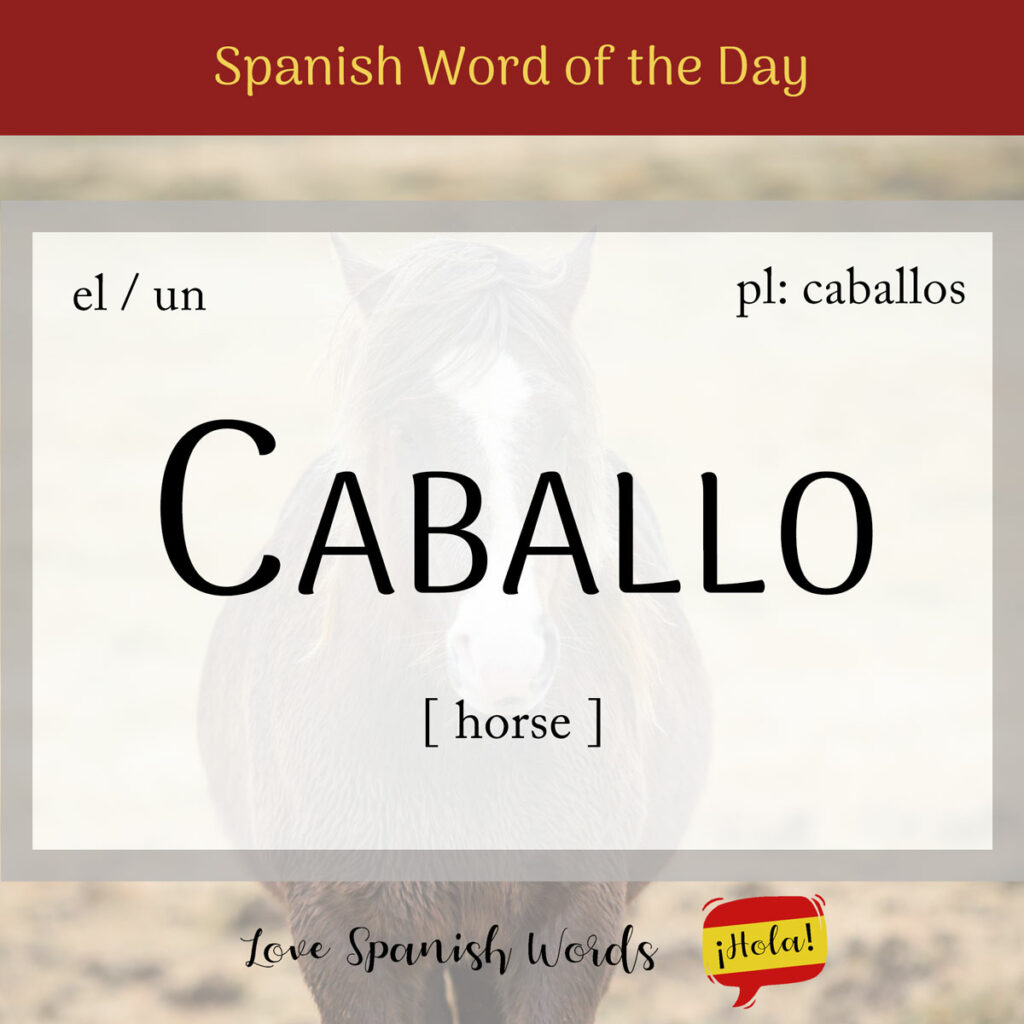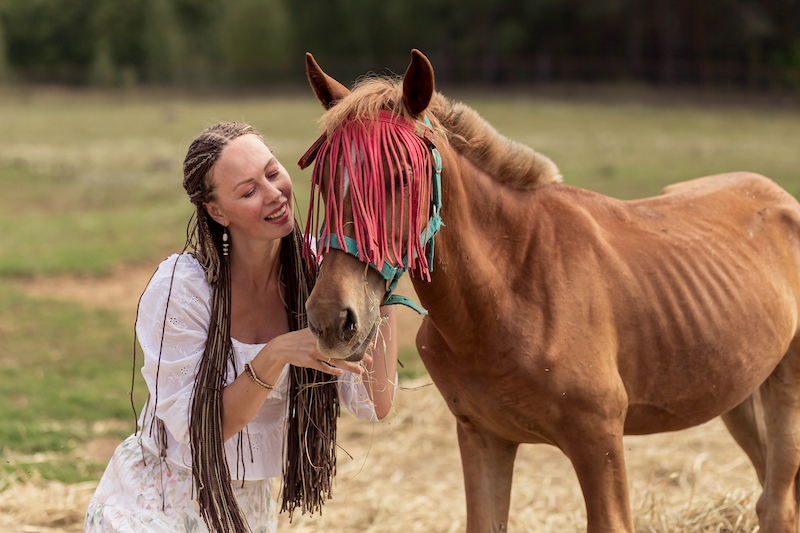An animal that has lived and worked alongside humankind for centuries is the horse or caballo in Spanish. Caballo comes from the Latin caballus meaning packhorse, of disputed origin. One theory is that the word originally came from the Ancient Greek καβάλλης (kabállēs), a loanword from an Asiatic language.
Latin American Pronunciation
European Pronunciation

Caballo is a masculine noun and specifically refers to a male horse (or any horse if you don’t yet know the gender).
- el caballo = the horse
- un caballo = a horse
- los caballos = the horses
- unos caballos = some horses
It’s important to note that to talk about a female horse, you cannot feminise the word caballo.
El próximo mayo quiero ir a la Feria del Caballo en Jerez de la Frontera.
Next May I want to go to the horse fair in Jerez de la Frontera.

Did you know that…?
To describe a female horse or mare you can use the word yegua which comes from the Latin equa.
If you are talking about a foal, say potro/a, potrillo/a or potranco/a.
The word caballa actually means mackerel.
The oldest European horse breed and one of the most famous breeds of horse is known as the Andalusian, Iberian horse or Pura Raza Española (PRE) (pure Spanish race).
Usually grey in colour, these horses are known to be strong, with extravagant movements, noble posture, and high jumping skills. PRE horses were used in corridas or races and official parades during Spanish national holidays. Valued for their endurance as a battle horse, PREs were a great asset during wars, but the versatile caballos de Pura Raza Española are also perfect for dressage riding. They are masters of advanced dressage and their light-footed movements make them born dancers.
When you want to talk about riding a horse, you should use the verb montar to ride alongside a caballo on horseback.
Me encantaría aprender a montar a caballo.
I would love to learn to ride on horseback.

Fun fact…
The hairstyle ponytail is known as cola de caballo in Spanish.
In Central and South America caballo is used colloquially as an adjective to mean stupid. In this case the word can be changed to agree with its subject and therefore a female stupid person can be called caballa.
In certain parts of Latin America the word caballo is also used as a greeting between men who know each other well. And in Chile caballo can be used as an adjective to mean enormous or massive.
The same as horse in English, caballo has some other meanings including the knight piece in a game of chess, the knight in a deck of Spanish cards, a unit of power (horsepower) and a slang word for heroine, caballo.

Idioms featuring ‘caballo’:
A caballo entre…
Literal translation: on horseback between…
English meaning: to be halfway between one place and another:
“Vivo a caballo entre Madrid y Barcelona” = I spend half my time in Madrid, half in Barcelona.
A caballo regalado no se le miran los dientes
Literal translation: don’t look at a gift horse’s teeth.
English meaning: don’t be ungrateful, don’t look a gift horse in the mouth
Ir a matar caballo
Literal translation: to go to kill horse.
English meaning: to go at breakneck speed or to go like the clappers

Fun fact…
The Spanish word for gentleman is caballero after the Latin caballarius, literally a horseman. However, in the Middle Ages, caballarius would have been used to refer to a nobleman or a man who had been knighted.
Therefore, caballero, gentleman, is a polite term for a man, whereas dama, lady is a polite term for a woman and you will still see these words used on the doors of toilets/restrooms to let you know which is which.

